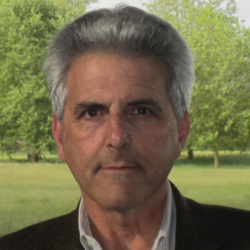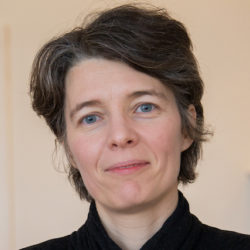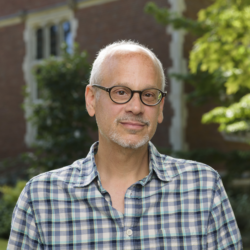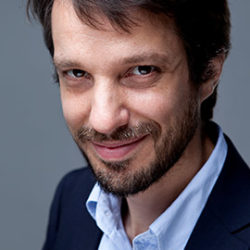Workshop Faculty

Neil Fligstein is the Class of 1939 Chancellor’s Professor in the Department of Sociology at the University of California. He has made research contributions to the fields of economic sociology, organizational theory, political sociology and social stratification. He is the author of eight books including The Transformation of Corporate Control (Harvard University Press, 1993), The Architecture of Markets(Princeton University Press 2001), Euroclash (Oxford University Press, 2008), A Theory of Fields (with Doug McAdam, Oxford University Press, 2012), and The Banks Did It (Harvard University Press, 2021). He is currently working on a project trying to understand corporate and governmental responses to climate change.

Professor Jackson’s research examines how corporate governance is influenced by diverse organizational and institutional contexts. His research utilizes cross-national comparison to better understand the regulatory and other societal influences on the corporation, particularly using the cases of Germany, Japan, the UK and USA. His research aims to link disparate fields of scholarship, including institutional theory, organizational analysis, economic sociology, and comparative political economy. Particular empirical interests have been the relationship of corporate governance and human resource management, and issues around corporate social responsibility and labor standards. His current projects seek to apply methods of fuzzy set and qualitative comparative analysis (QCA) to understanding.
Gregory Jackson’s research has been published widely in leading business journals. A number of his projects on public policy have been sponsored by the Department of Trade and Industry (UK), the Ministry of Economy, Trade, and Industry (Japan), the Institute of Chartered Accountants of England and Wales, and the Hans-Boeckler Foundation. His research also is cited by The Economist, Financial Times, and BBC radio. He is an editor of British Journal of Industrial Relations and serves as Chief Editor of Socio-Economic Review since 2012.

Angela Knox is an Associate Professor of Work and Organisational Studies at the University of Sydney Business School. Her research interests focus on job quality, precarious work and employment regulation and she has a particular interest in the tourism/hospitality industry. She has published widely including within the International Journal of Human Resource Management, Human Resource Management Journal, Work, Employment and Society, Gender, Work and Organisation and Journal of Industrial Relations. With Professor Warhurst, she co-founded the Job Quality Research Group at the University of Sydney Business School and co-edited a special issue of the Journal of Industrial Relations on job quality. Angela seeks to improve the quality of jobs in Australia through policy and research.

Virág Molnár holds a Ph.D. from Princeton University and is currently a Professor of Sociology at the University of Amsterdam. Before moving to Amsterdam, she was Associate Professor of Sociology at the New School for Social Research in New York. Her research explores the intersections of culture, politics, and social change in Eastern Europe, with special focus on urban culture, the built environment, and material culture. She has written about architecture and state formation in socialist and postsocialist Eastern Europe, the post-1989 reconstruction of Berlin, and the new housing landscape of postsocialist cities. Current projects include a comparative study of emerging markets for street art in New York, Berlin and Budapest; the politics of urban rodent control; and the cultural production of nationalist populism in contemporary Hungary. Her book Building the State: Architecture, Politics, and State Formation in Postwar Central Europe (Routledge, 2013) received the Mary Douglas Prize from the American Sociological Association. She has been a visiting fellow at the Minda de Gunzburg Center for European Studies at Harvard University, the Humboldt Universität in Berlin, the American Academy in Berlin, and the Institute for Advanced Study in Princeton. Her research has been supported by the National Science Foundation, Alexander von Humboldt Foundation, Marie Curie Intra-European Fellowship, and the American Council of Learned Societies, among others.

Jacqueline O’Reilly is full Professor of Comparative HRM at the University of Sussex Business School and Co-Director for the ESRC £8 million investment in the Digital Futures at Work Research Centre (digit-research.org) (2020-24).
She is the UK lead on the Horizon 2020 EUROSHIP project on social protection in Europe (euroship-research.eu) (2020-23). Previously, she coordinated EU STYLE: Strategic Transitions for Youth Labour in Europe (www.style-research.eu) (2014-17) and was UK lead on the EU NEGOTIATE project (www.negotiate-research.eu) (2015-18).
Her most recent research focuses on the digital transformation of work, labour market policy and international comparisons of gender, ethnicity and labour market transitions across the life course.
She completed her doctorate at Nuffield College, University of Oxford on an Anglo-French comparison of employment practices in the banking sector. She worked for ten years at the Social Science Research Centre Berlin (WZB), Germany, and at Sciences Politiques in Paris, London, Manchester and Brighton Universities in the UK.
In 2000 she was awarded a Jean Monnet Research Fellowship at the European University Institute in Florence. She is a visiting research fellow at the Collegio Carlo Alberto, University of Turin, a member of the Scientific Advisory Board of Sciences Politiques, Paris, and Visiting Senior Research Fellow at the Wirthschafts- und Sozialwissenschaftes Institut (WSI), Dusseldorf.
She has served on the editorial board of the BJIR, Socio-Economic Review, and Work, Employment and Society where she was also Chair of the editorial board. She was elected twice to the Executive Council of SASE. In 2019 she was elected Fellow of the Academy of Social Sciences for her distinguished contribution to the field of interdisciplinary research.
She has been consulted by HM Treasury, Full Employment Team and the UK Cabinet Office Open Innovation Unit on equal pay and youth employment. She is an Evaluation Rapporteur for the European Commission Horizon 2020 research programme, was invited as an advisor to the ILO Work4Youth programme funded by The MasterCard Foundation, and was an evaluator on two occasions for the German Excellence Initiative of the Deutsche Forschungsgemeinschaft (€151 million investment).
She lives in Hove, UK with her two teenage sons where she enjoys living by the sea, watching Nordic Noir and discovering whether youth music today is better than that of the 1980s.
Researchgate.net: https://www.researchgate.net/profile/Jacqueline_Oreilly
ORCID ID: http://orcid.org/0000-0001-6223-154X

Roberto Pedersini is Associate Professor of Economic Sociology and Director of the interdepartmental research centre “WTW – Work, Training and Welfare” at the Università degli Studi di Milano. His main research interests concern labour market regulation and policies and industrial and employment relations. He has both participated and coordinated several research projects in these fields since the early 1990s at both national and international level. He has collaborated with the International Labour Office and collaborated as an expert with the European Commission and the European Foundation for the Improvement of Living and Working Conditions in several occasions. His recent publications include Economic crisis and the politics of public service employment relations in Italy and France (with Lorenzo Bordogna, in European Journal of Industrial Relations, vol. 19, no. 4, 2013), Coping with the crisis in Italy: Employment relations and social dialogue amidst the recession (with Marino Regini, ILO, 2013) and contributions to Sociology of Work. An Encyclopedia (V. Smith, ed., Sage Publications, 2013).

N: Finance and Society
Akos Rona-Tas is Professor of Sociology at the University of California, San Diego where he is also founding faculty of the Halicioğlu Data Science Institute. For many years, he was a senior research associate at INRA, Paris, and he was the President of SASE in 2018-2019.
He has written two books on market creation. Great Surprise of the Small Transformation: Demise of Communism and Rise of the Private Sector in Hungary, was published by Michigan University Press, the second one, co-authored with Alya Guseva, Plastic Money: Constructing Markets for Credit Cards in Eight Postcommunist Countries, by Stanford University Press.
He has published articles on the post-communist transition, on small entrepreneurs, consumer credit, and payment card markets in journals including the American Sociological Review, American Journal of Sociology, Theory and Society, Socio-Economic Review, Social Science Research, Research on Sociology of Organizations, Journal of Comparative Economics, Research in the Sociology of Work, as well as various chapters in edited volumes. He is currently working on the problem of rationality and uncertainty in two different contexts: credit assessment and the use of science in risk management.
Akos Rona-Tas has been a member of SASE since 2005. He is the co-founder and co-organizer of the Finance and Society Network, served on the Executive Council between 2012 and 2015, as Treasurer between 2015 and 2018, and as SASE President in 2018/19.

A: Communitarian Ideals and Civil Society
Marc Schneiberg, the John C. Pock Professor of Sociology at Reed College, is an economic and organizational sociologist who research focuses mainly on the rise, contemporary fates, and economic consequences of organizational diversity and alternatives to giant, shareholder corporations within American capitalism. He has studied the evolution of cooperative and other alternative enterprise systems in the US, including electrical and agricultural cooperatives, insurance mutuals, community banks, and credit unions. He has also addressed how such systems can help reshape markets, subject corporations to countervailing forces, and foster both resilience and shared prosperities in local economies. With National Science Foundation support, he is currently studying organizational variety within American banking and how it combined with state policy to channel flows of loans away from—and in to—small business in poor and minority communities during the pandemic. Schneiberg also has long standing interests in institutions and their relationships with social movements, and in economic governance, including association, regulation and self-regulation in American manufacturing and finance. He has been honored to serve in various capacities in the American Sociological Association, the NSF and the Society for the Advancement of Socio-Economics. His work can be accessed on his webpage.
